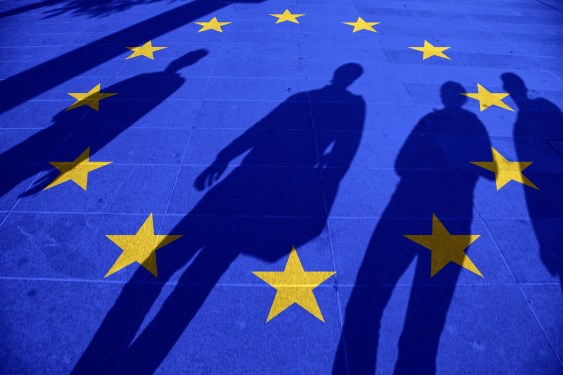The New Wave of Innovation: U.S. Antitrust Actions and Their Impact on Tech Powerhouses
Introduction
The U.S. government has recently intensified its antitrust scrutiny of major tech companies like Facebook (Meta), Google, Amazon, and Microsoft. These actions follow Europe’s lead in breaking up monopolies to foster innovation and competition in the digital age. This essay explores how these regulatory developments are reshaping the tech landscape and creating new opportunities for startups worldwide.
The U.S. Antitrust Landscape: A Closer Look
The Federal Trade Commission (FTC) has been at the forefront of enforcing antitrust laws against big tech companies. Recent actions have included investigations into Facebook’s data practices, Google’s market dominance, Amazon’s logistics monopoly, and Microsoft’s control over its ecosystem. These moves aim to level the playing field for startups and new industries emerging from the digital transformation wave.
- Facebook (Meta): The FTC has accused Facebook of creating a "de facto global monopoly" through its Meta platform. This includes exclusive app stores that favor Meta products, making it difficult for other companies to compete in hardware, software, or services.
- Google: The FTC is investigating Google’s market dominance across search engines, Android operating system, and Google Cloud Computing Services (GCaaS). The goal is to ensure fair competition in these industries.
- Amazon: The FTC has accused Amazon of abusing its dominant position in logistics to stifle competition. This includes exclusive deals with package carriers like UPS and DHL, making it harder for startups to enter the logistics sector.
- Microsoft: While Microsoft has successfully avoided breakup so far, the FTC is reviewing its practices under antitrust scrutiny. This includes its control over its ecosystem and the potential impact on smaller competitors.
Europe’s Role in Regulating Big Tech
In parallel with U.S. actions, European regulators have been enforcing stricter antitrust laws against tech companies. These measures aim to protect consumer privacy and ensure competition. For example:
- Spotify: The European Commission has approved Spotify’s expansion into the U.S., allowing it to grow without interference from major U.S. tech companies.
- Adyen: A leading European payments processor, Adyen has gained significant market share in the U.S. due to its adherence to privacy regulations and competitive pricing.
The Impact on Startups and Innovation
The increased scrutiny of big tech companies is spurring innovation among startups and new industries. For instance:
- Uber’s Growth: Uber’s rapid rise is a testament to how regulatory changes are enabling startups to challenge traditional tech companies.
- EQT Ventures: This venture capital fund, which invests in Permutive (a privacy-focused AI platform) and Handshake (a startup focused on creating new industries based on individual privacy), has positioned itself as a leader in supporting innovative startups.
The Future of Tech Monopolies
Big tech companies are struggling to maintain their dominance as the playing field is leveled or even tilted against them. For example:
- Uber’s Competition: With ridesharing apps like Lyft and滴滴 growing stronger, Uber faces increasing competition from startups with cheaper pricing models.
- EQT Ventures’ Vision: By focusing on individual privacy, companies like Permutive and Handshake are positioning themselves to thrive in a world where traditional tech monopolies may no longer dominate entire industries.
Conclusion
The U.S. antitrust actions against big tech companies are part of a broader global trend aimed at fostering innovation and competition. While these measures present challenges for established tech giants, they also create new opportunities for startups and entrepreneurs looking to challenge the status quo. As the digital economy continues to evolve, the interplay between regulation, competition, and innovation will remain a key driver of industry transformation.
References:
- GP Bullhound’s prediction about Europe having two $50 billion companies by 2021.
- Links to websites: Meta (www.facebook.com), Google (www.google.com), Amazon (www.amazon.com), Microsoft (www.microsoft.com).









